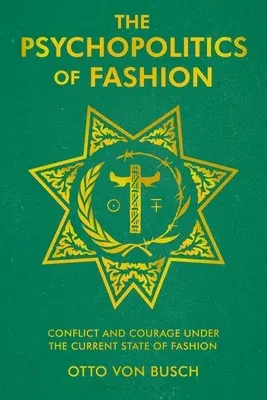Otto Von Busch
(Author)The Psychopolitics of Fashion: Conflict and Courage Under the Current State of FashionHardcover, 20 February 2020

Qty
1
Turbo
Ships in 2 - 3 days
In Stock
Free Delivery
Cash on Delivery
15 Days
Free Returns
Secure Checkout

Print Length
200 pages
Language
English
Publisher
Bloomsbury Visual Arts
Date Published
20 Feb 2020
ISBN-10
135010230X
ISBN-13
9781350102309
Description
Product Details
Author:
Book Format:
Hardcover
Country of Origin:
US
Date Published:
20 February 2020
Dimensions:
23.62 x
16 x
1.78 cm
ISBN-10:
135010230X
ISBN-13:
9781350102309
Language:
English
Location:
New York
Pages:
200
Publisher:
Weight:
612.35 gm